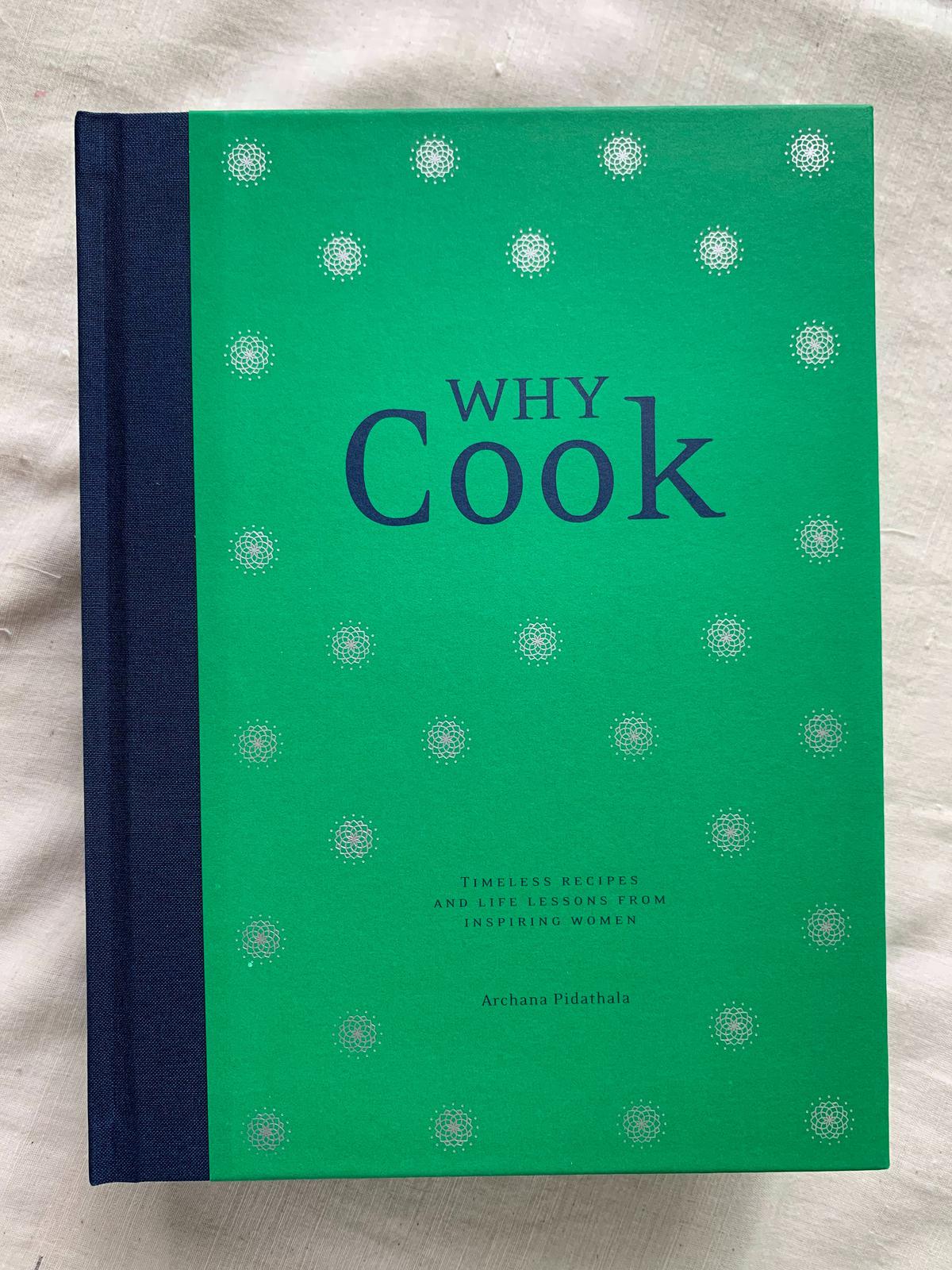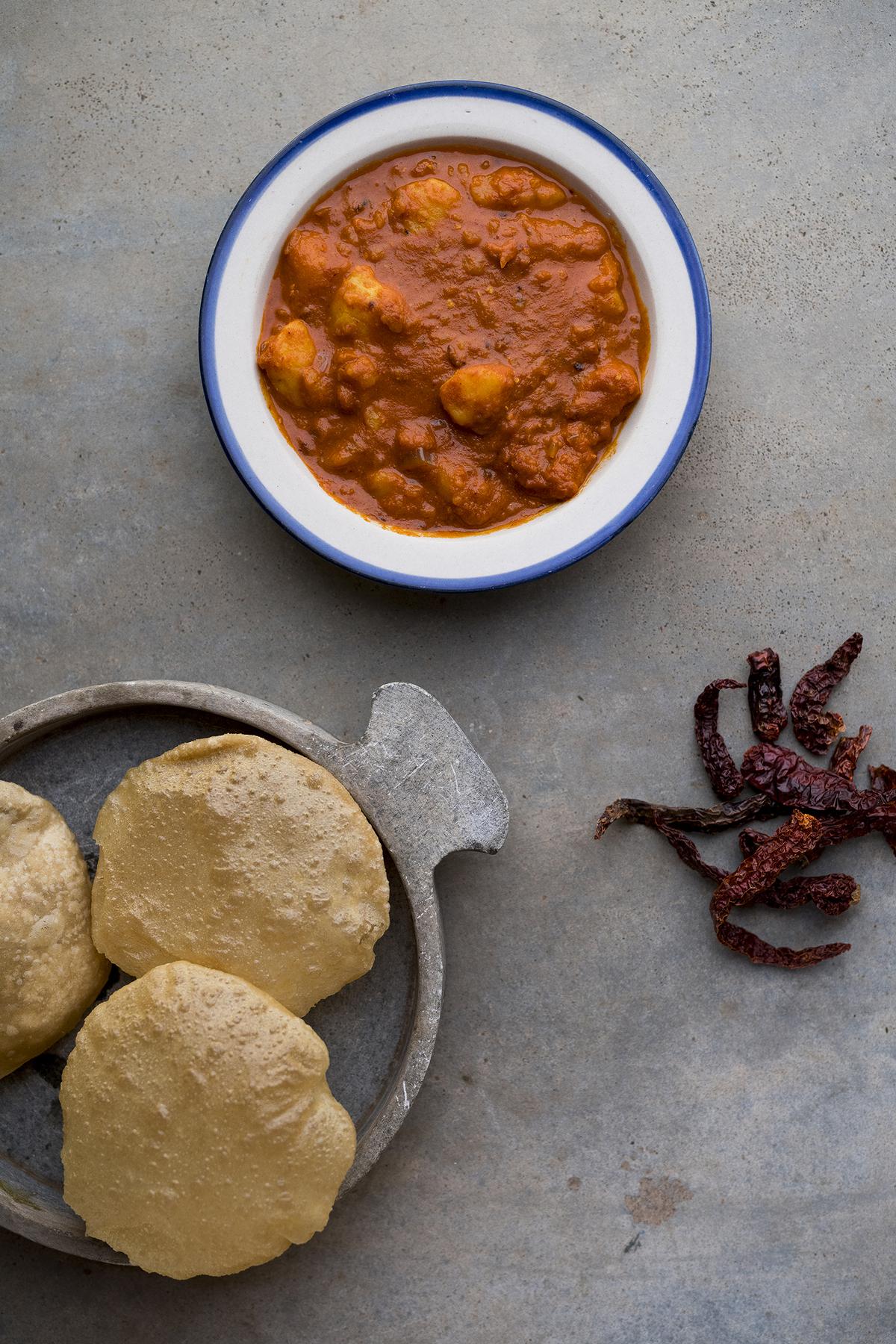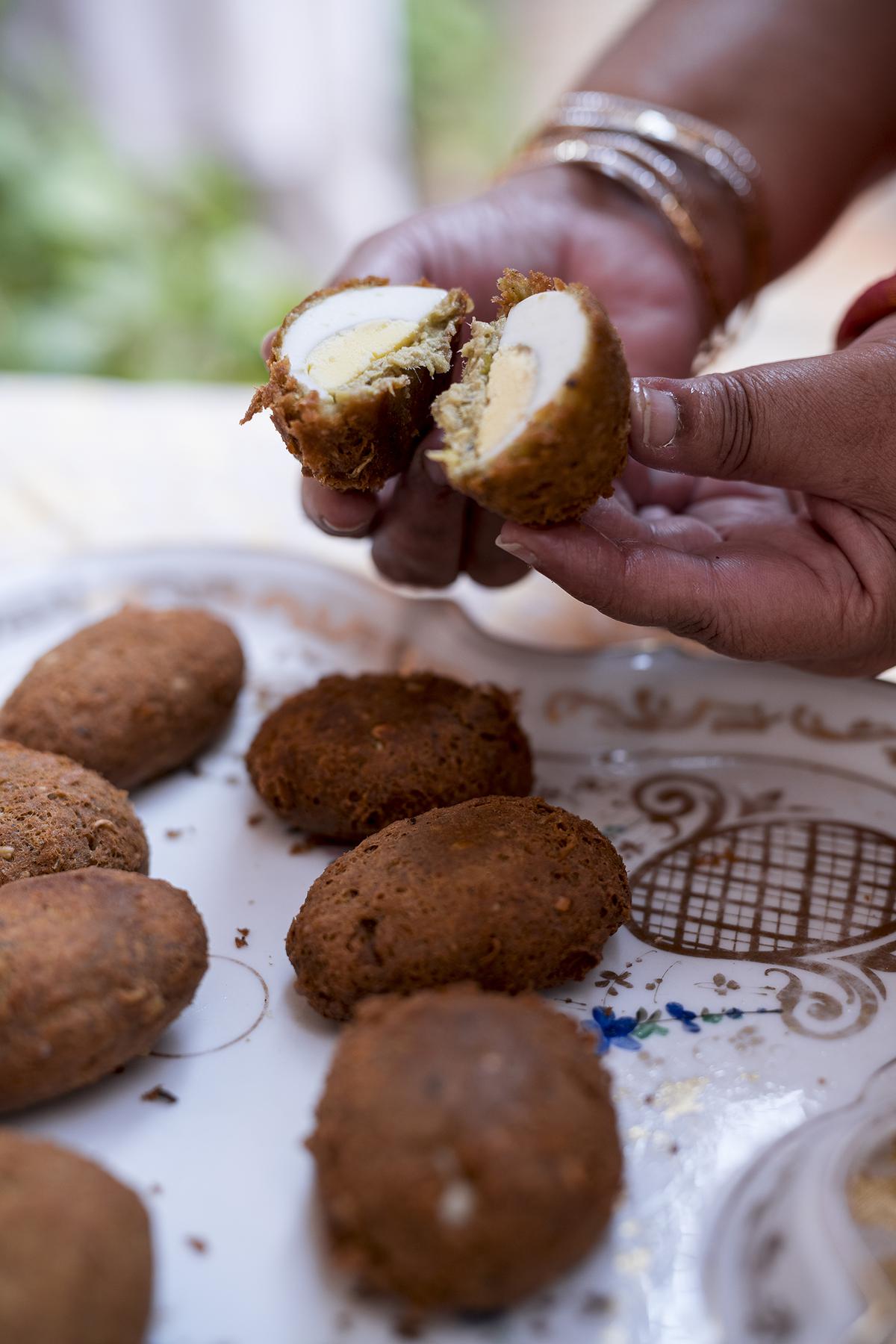Archana Pidathala on her latest book Why Cook
I speak to Archana Pidathala about her new book Why Cook on the eve of her son’s birthday. This has her harking back to a special memory when testing out the many thoughtfully-curated recipes. “I spent an entire evening testing the recipe with him making 75 momos and chatting away! They were imperfectly sealed, but the experience of creating them from scratch and making an evening out of this was great,” says the Bengaluru-based author who has featured 16 women and their chosen recipes in her self-published, recently released book, Why Cook.
“These are easy, comforting recipes that come from lives fully lived,” says Archana. As she describes in the foreword, the book came from her ‘11,500-kilometre tour across India to meet and cook with friends, old and new — women who have deeply influenced the way I cook, think and eat. This book is a chronicle of life stories and recipes I captured over the course of that journey.’

The book’s cover
| Photo Credit:
Balazs Glodi
Archana started cooking only in her late 20s after becoming the ‘unlikely custodian of her amama’s recipes’, and her first cookbook, Five Morsels of Love (2017) — winner at the 2017 Gourmand World Cookbook Awards — was a tribute to her grandmother’s culinary repertoire. “Cooking for me became a way to approach life and it has been a great teacher,” she says. “I consciously did not want to do anything with cooking in my early years, and I often lied that I was on a sabbatical when working on my first book. What a loss that I did not cook earlier,” she says.
Read more |Archana Pidathala’s top 3 recipes from Why Cook
Blending food philosophies
Apart from having 80% vegetarian recipes, there Is a strong focus on zero-waste cooking in Why Cook. Archana explains how she did not plan for the book to go in any one direction, and realised this only when she put it together. “I did not impose any restrictions on what these women would like to share or not. I just wanted their personalities mirrored in the recipes. It was very organic.”
For instance, Shalini Philip’s (of Chennai’s The Farm) memory of a neighbour in Kerala, aunty Prema, and her fried fish curry with leftover fried fish is a strongly embedded memory. “The recipe was found in her mother’s book,” shares Archana, describing the many cooking philosophies her book represents. Be it a chutney using cauliflower stems, a rasam with mango seeds, or how Shree Mirji aunty [a homemaker featured in the book] puts pumpkin skin in some batter, these are recipes rooted in their families.”
One of the first recipes Archana tested was Arundhati Nag’s batata saung (a potato curry with coconut and tamarind). “The dish is so simple, but it blew my mind.” Even Chinmayie Bhat’s (founder, Soul Slings) sweet potato payasam. “I recall going to her house and she cooked it for me. On my way home, I bought sweet potatoes and made it in an hour!”

Arundhati Nag’s batata saung
| Photo Credit:
Balazs Glodi
Zero-waste was never a conscious thread, reiterates Archana, adding how this is something many traditional Indian kitchens follow. In her own kitchen too, the author says she has integrated what she admires in the women featured. “I have spent a lot of time in these kitchens. My weekly meal plan, for instance, is inspired by what Aditi Upadhyay told me: incorporate greens and pulses twice a week, veggies everyday, and so on.” Archana also learnt from her mother-in-law, who is big on zero-waste cooking. “I would always peel potatoes and cucumbers, but she wouldn’t. This cooking philosophy was always evolving and the book deepened it.”
The zero-waste kitchen
Over the course of meeting the women, Archana found new ways of cooking. “I had never cooked jackfruit seeds, but after Chinmayie introduced me to them, I now make everything from hummus to sambar with them.” Having grown up in Rayalaseema, a dry part of Andhra Pradesh, she says fresh coconut was an uncommon ingredient. But after Why Cook, it became integral in her cooking, as did various types of oil. “I hadn’t used mustard oil before learning from Anita Tikoo’s recipes, and Swati’s Himalayan delicacies,” she shares, adding how coconut and sesame oil now find a place in her larder. “I cook many more greens now,” says Archana. These include a mountain spinach chutney, a gondruk recipe (fermented dried greens). “My kitchen has become more diverse and coconuty!”

Nargisi kofta
| Photo Credit:
Balazs Glodi
As for her tips for those looking at running a zero-waste kitchen, Archana is quick to say that “there’s no one way to cook” and what might work for her, will not for someone living in a different city.
“Firstly, being open to cooking as it is a life skill is important. And then, question your choices and look at how you can be sustainable on an everyday basis: use less vessels, for example. Eat locally as much as you can, and find one small farmer collective and support them,” she says, adding how cooking has been a great teacher for her. “It helps bring your senses to the kitchen. When I started cooking and my son was young, I questioned the small things: is this dishwashing liquid okay? Was something environmentally safe to do? This brought me closer to Nature and helped me observe the world sensitively.”
₹2,400 on fivemorselspress.in/
For all the latest Life Style News Click Here
For the latest news and updates, follow us on Google News.
